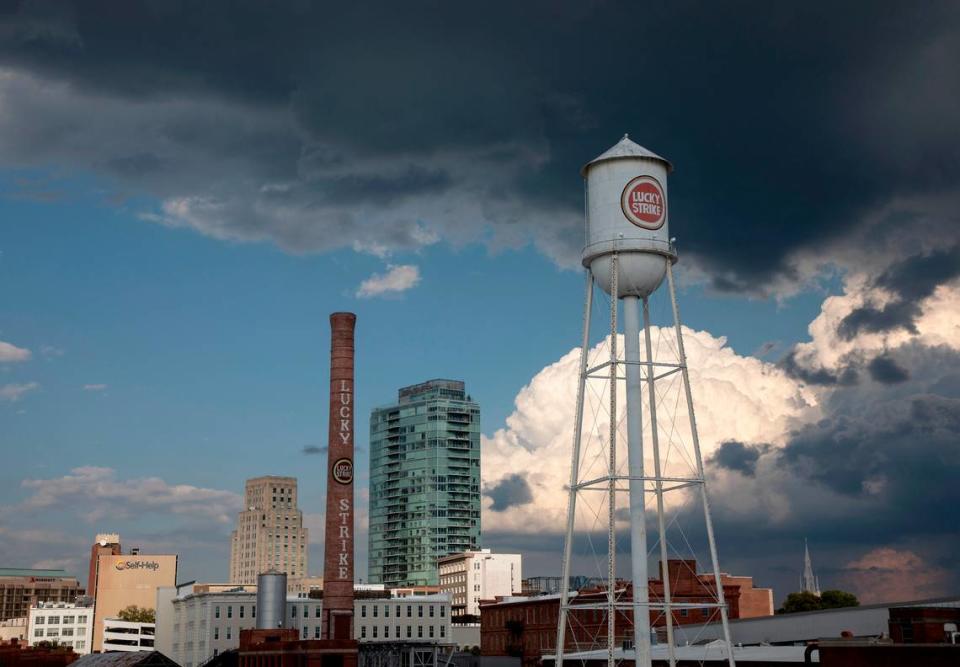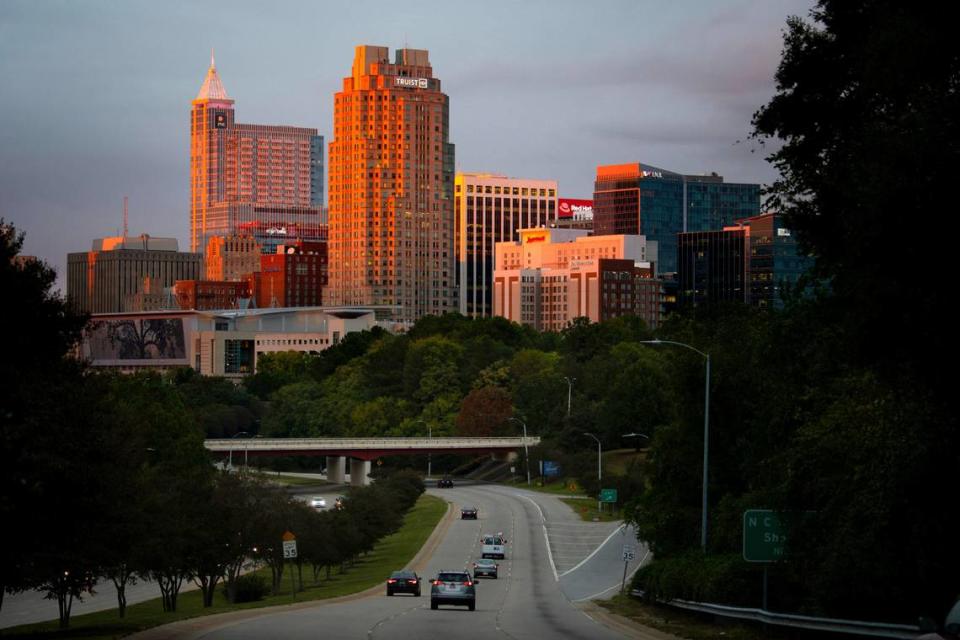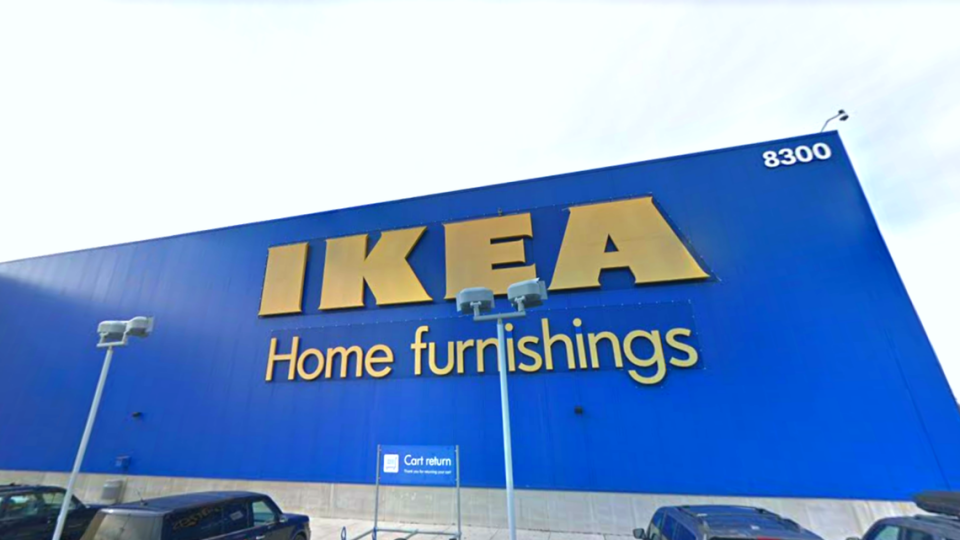Open Source: The NC Triangle isn’t counted as a single metro. Some say that’s an issue.
I’m Brian Gordon, tech reporter for The News & Observer, and this is Open Source, a weekly newsletter on business, labor and technology in North Carolina.
The Triangle, in a sense, doesn’t exist as a whole. It did once, but then in 2003, Raleigh and Cary split into a single metropolitan statistical area, or MSA, while Durham and Chapel Hill formed another.
Delineating metro areas has been the work of the U.S. Office of Management and Budget since 1949. Various agencies rely on these geographic units to track demographics and properly allocate programs and services. Today, there are 387 MSAs nationwide, defined as population hubs with at least 50,000 residents — plus neighboring communities that share “a high degree of economic and social integration with that core.”
Raleigh and Durham are each large enough to be their own MSA cores. But they certainly also have “a high degree of economic and social integration.” The airport is Raleigh-Durham International. Commuters between the two cities clog I-40 daily. The collective “Triangle” nickname emerged in the 1950s and economic leaders have relentlessly promoted the regional brand since.
Raleigh-Durham Startup Week will kick off on Monday. The cities don’t hold competing events.

The U.S. Bureau of Labor Statistics says employees within a given metropolitan statistical area should be able to switch jobs without having to move. That sounds like the Triangle. If you live in Raleigh, would you move for a new job in Durham? Or vice versa? How about Cary to Chapel Hill? Now consider if your significant other already works in Research Triangle Park?
And it would seem the Triangle has only grown more linked over time, with the rapid growth of Cary and Morrisville filling the space between the region’s two largest cities. Seriously rapid growth: Cary had 43,858 residents in 1990; it now has more than 180,000. Morrisville had 1,000 people in 1990; it has over 31,000 residents today.
“Trust me, I’ve picked all the routes from Raleigh to Durham,” said Jeremy Petranka, a Duke University economics professor who lives in the capital city. “There is no place where it’s nice and empty here. That doesn’t exist anymore.”
Why then are the metros counted differently?
Michael Cline, North Carolina’s state demographer, said metrics like population density and commuting patterns distinguish MSAs. He noted Raleigh and Durham could eventually re-merge “if the population densities between the two increased even further to a point where there is no real distinction between the two.”
But he believes this isn’t yet the case, saying “today, you can drive between the two and still feel that you are leaving one and entering another.”
Of course, each part of the Triangle possesses its unique history, pace and cultures. Last weekend, for example, it definitely felt like a Raleigh team defeated a Durham team to advance to the men’s basketball Final Four.

But does the Raleigh and Durham metro divide actually matter?
From one angle, it largely doesn’t, says Nathan Dollar, director of Carolina Demography at UNC Chapel Hill. “I’ve rarely actually used MSAs in what I do,” he said. “We do a lot much more county-level analysis.”
When recruiting businesses to locate or expand in the state, the Economic Development Partnership of North Carolina combines MSA data or creates custom geographic areas. “It does not arise as an issue,” EDPNC spokesperson Maggie Bizzell said in an email.
However, other stakeholders say having two distinct markets does in fact limit the region.
“If you are a national or international company, when you are looking at where to put your company, you might just pull census data for every MSA in the country,” said Matt Gladdek with the Greater Durham Chamber of Commerce. “If you don’t know to combine our MSAs, then our labor force does not look nearly as good.”
Raleigh and Durham both routinely rank well in economic studies, but there’s a belief the joint area would score higher.
“We tell a bifurcated story if people follow just simply the MSA rankings,” said Thom Ruhe, president and CEO of NC IDEA, a private foundation that awards grants to early-stage startups. “There are more than a few organizations that track and rank MSAs — whether it’s Startup Genome, or Startup Blink or the Economic Innovation Group. There are so many of these lists that say, ‘Hey, best place to start a company in the country.’”

Businesses and workers pay attention. “We’re all competing for attention and eyeballs,” Ruhe said. “Trying to make a case for where should limited resources be directed or where should people consider moving.”
For example, the financial database PitchBook tracks venture capital activity by metro area. This is a sector where the Triangle lags bigger rivals Boston, Austin and, of course, Silicon Valley. If combined, Raleigh and Durham would still trail — but the gap would shrink.
About six years ago, Ruhe recalls local economic leaders gathered at the Raleigh Founded coworking space to discuss ways to form a single Triangle MSA. Gladdek has also been involved in such discussions, but he pointed out federal funding complicates a potential merger as some government money is tied to MSAs. Alter the MSA and you alter that funding.
Regardless, it appears data dictates how the Triangle is split. And these numbers get updated through the census every 10 years.
The rest of this week’s NC tech headlines
An April Fools’ joke on Reddit “reported” an IKEA was coming to Durham’s old Northgate Mall. Few seemed fooled, but the gag reflected the Triangle’s long-held desire for the popular Swedish furniture store. The chain is currently expanding in the U.S., and local rumors persist.
This is no April Fools’ joke: After several false starts, Topgolf will soon open near Research Triangle Park.
WeWork is staying in the heart of downtown Durham, albeit with a smaller footprint, as the coworking provider sheds real estate amid its bankruptcy.
Charter Communications, which owns Spectrum, laid off 67 employees last week when it decided to close a call center in Morrisville. The company will offer most of the affected staff other jobs, according to Business NC.
Biofidelity, a British biotech company with its U.S. headquarters in Morrisville, raised $24 million, money the firm says will allow it to expand a molecular diagnostic test to detect non-small cell lung cancer.
The Triangle Tweener Fund has invested $940,000 in 18 local startups so far this year, adding 10 new companies to its portfolio. Recipients include a college application software provider, a fertilizer generator, and a Y Combinator alum. Here’s the full list of companies.

National Tech Happenings
Google will erase millions of users’ private browsing data as part of a class action lawsuit settlement over how the search giant used its incognito mode.
Listen up. Spotify plans to increase its monthly subscription rate for U.S. customers later this year, Bloomberg reports.
The U.S. Department of Justice may have learned a lesson from Cary’s Epic Games when the government recently sued Apple for antitrust in the Third Circuit Court in New Jersey, which has a reputation for being harder on alleged monopolies.
This contrasts with Epic Games, which filed its 2020 antitrust lawsuit against Apple in the Ninth Circuit Court, which encompasses Northern California (home of Apple). Epic mostly lost that case.
Thanks for reading!

